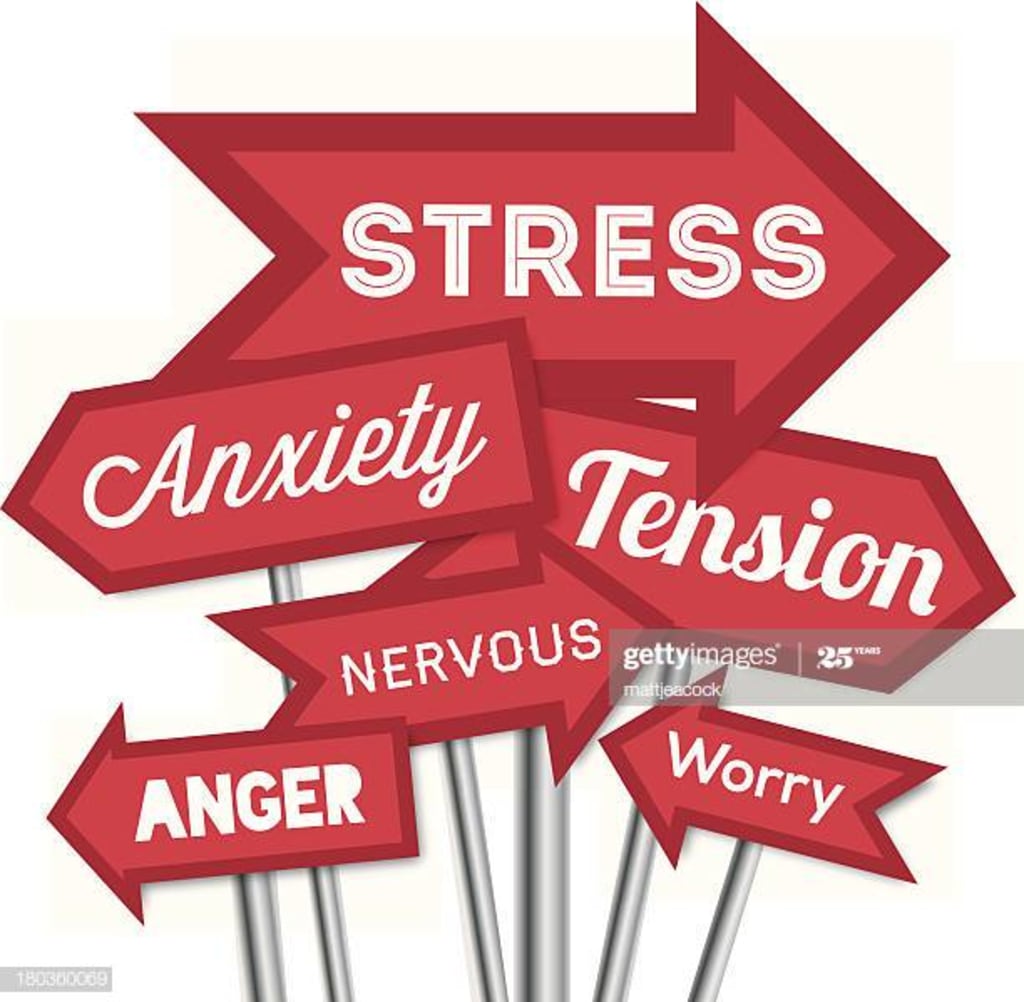Anxiety disorders can paralyze the sufferer with constant fear and worry?
Anxious?


Anxiety is something we all feel from time to time. It’s normal to feel anxiety symptoms like apprehension or nervousness when faced with a difficult situation at work, school or home.
If I would say that little bit anxiety is actually good to achieve your desired task in life it will be not wrong. An anxiety disorder, however, is quite different. A true anxiety disorder is a brain disease and more precisely a dysregulation of the brain’s inhibitory chemical messengers. These conditions are characterized by feelings of fear, apprehension and panic; obsessive, ruminative thoughts; distressing intrusive thoughts and/or nightmares related to a past traumatic experience, difficulty sleeping, and counting or checking rituals.
Symptoms for Anxiety disorders or checklist for anxiety
Overwhelming feelings of panic and fear with
• Uncontrollable obsessive thoughts
• Painful, intrusive memories
• Recurring nightmares
• Physical symptoms such as feeling sick to your stomach, “butterflies” in your stomach, heart pounding, startling easily, and muscle tension
Main types of Anxiety disorders
• Social Anxiety Disorder - Excessive worry and self-consciousness about everyday social situations.
• Generalized Anxiety Disorder - Constant and excessive worry for no apparent reason.
• Panic Disorder - Unexpected and repeated panic attacks, sometimes accompanied by agoraphobia.
• Obsessive-Compulsive Disorder - Obsessive and unwanted thoughts, leading to rituals that are performed compulsively in an attempt to control the unwanted thoughts.
• Post-Traumatic Stress Disorder - Anxiety that develops in response to a traumatic event, often manifesting as flashbacks, upsetting memories, and feelings of numbness.
• Phobias - Extreme fear of a specific object or situation that is out of proportion to the actually threat.
Anxiety disorders differ from normal feelings of nervousness. Untreated anxiety disorders can push people into avoiding situations that trigger or worsen their symptoms. People with anxiety disorders are likely to suffer from depression, and they also may abuse alcohol and other drugs in an effort to gain relief from their symptoms. Job performance, school work, and personal relationships can also suffer.
Clinical studies suggest a correlation between anxiety disorders and dysfunction in the amygdala, a part of the brain involved in attaching emotional resonance to events occurring in a person’s environment. Also, a low level of gamma aminobutyric acid (GABA) a neurotransmitter that inhibits energy in the brain seems to contribute to heightened anxiety. The use of alcohol has also been shown to reduce GABA in the brain, making it harder for alcohol users to naturally calm their anxiety.
Psychotherapist knows the therapeutic approaches that those who suffer from anxiety disorders and panic attacks respond to best. Cognitive behavioural therapy (CBT) works especially well with patients, helping them to identify and change specific thoughts or patterns of thinking that tend to exacerbate their anxiety or undermine their ability to self-soothe.
some helpful tips are below;
1. Eat balance diet to boost your immune system.
2. Avoid substances, alcohol and smoking.
3. Exercise and walk indoors or if possible outdoors.
4. Maintaining hope and Positive thinking.
5. Disconnect yourself from intranet for two to four hours daily.
6. Set daily goals and appreciate yourself after achieving it.
7. Practice breathing exercises with relaxation.
8. Mirror technique to reduce anxiety before meeting new people.
9. Body scanning promotes mindfulness by focusing your attention on various parts of your body. Like progressive muscle relaxation, you can start with your feet and work your way up. However, instead of tensing and relaxing your muscles, you simply focus on the way each part of your body feels, noticing any sensations without labelling then as “good or bad”.
Stay healthy physically and mentally because there is no health without mental health.
Written by Farzana Naeem
Clinical psychologist
If you have any queries, please contact on 00263772397362
Email;[email protected]
About the Creator
Farzana Naeem
clinical psychologist and content writer






Comments
There are no comments for this story
Be the first to respond and start the conversation.